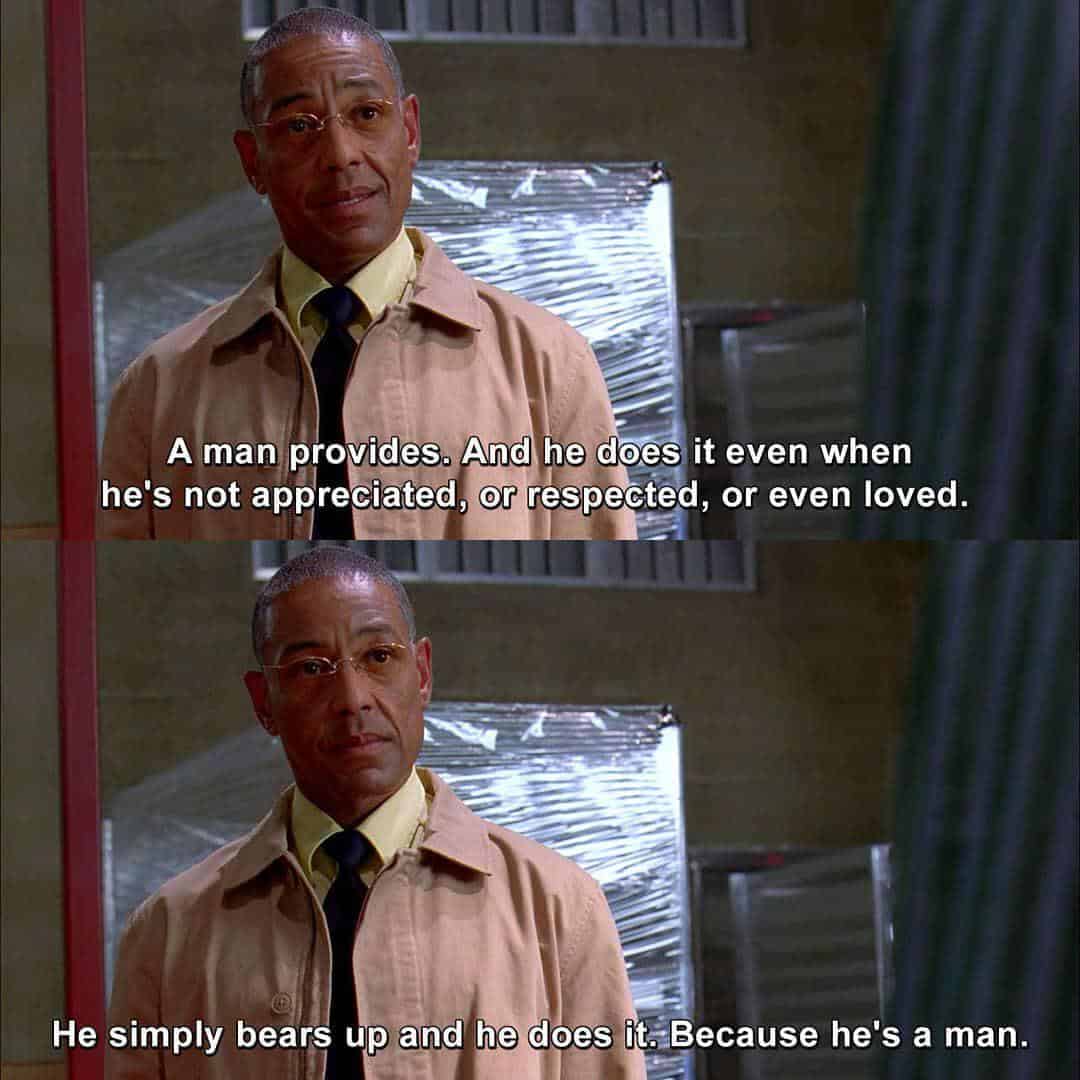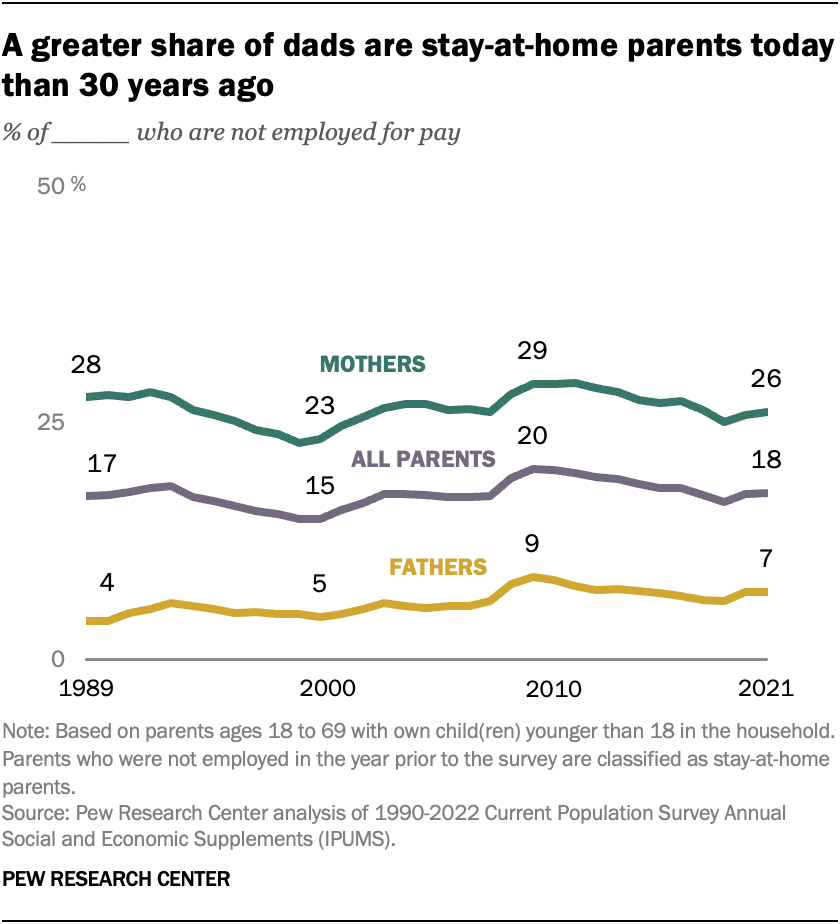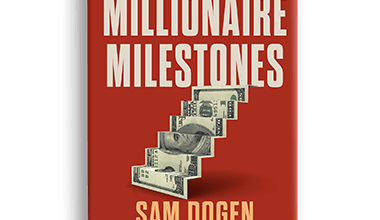How To Overcome Travel Guilt As a Stay-at-Home Parent

I was talking to a full-time mother the other day, and she was pissed. Her full-time working husband was heading out on yet another business trip. It was his third week-long trip that month, and she was over it. Their two kids missed their father, and she didn’t think all the travel was truly necessary, even if it was for work.
After all, we all went through COVID, and everything worked out just fine with video conferencing. She felt he was choosing to travel more than he needed to, mainly for the fun of it and to get a break from the kids.
That conversation got me thinking about the tension that builds in households where one parent stays home and the other goes to work. I feel it too. Every time I debate attending a conference versus preserving a precious weekend with my wife and children, the internal pull is real. With my two kids now in school full-time, the weekends matter even more.
The Challenge of Being a Stay-at-Home Father
Given I’m a man, I’m going to write this post from a father’s perspective.
Men are trained from a young age to provide. Even if nobody acknowledges the work, we continue showing up. We feed, protect, teach, drive, fix, support, and problem solve through every stage of our children’s lives.
Being a father requires intrinsic motivation. You cannot expect, let alone crave recognition for a job well done, because nobody cares. Nobody asked you to be a father, and society doesn’t do a good job in appreciating a man’s efforts when it comes to the family
Gus Fring, from Breaking Bad, sums up one version of what it takes to be a man today. Is it any wonder why so many men opt out of marriage and fatherhood?

Being a full-time parent can be so demanding that some parents actually crave the structure of work just to get a break from parenthood. There’s no off switch with full-time parenting. One distracted moment can lead to disaster.
So after years of pickups, drop-offs, cooking meals, teaching skills, and spending weekends away from friends, how do you let go of the guilt when you finally take a break? How do you give yourself permission to leave your family behind for a little personal leisure?
You start by comparing yourself to other parents, and follow a new framework I’ve created, in true American nerd fashion.
Step One: Compare Yourself to the Average Dad (Or Mom)
When you become a stay-at-home father, you lose touch with the rhythms of normal working dads. Once your children enter school and you start meeting other parents, the contrast becomes obvious.
Most fathers are working full time. Supposedly, the average dad spends 60 to 80 minutes a day with their children. I know, it’s hard to believe, but that’s what the data says.
In contrast, a stay-at-home fathers spends anywhere from 8 to 24 hours a day, depending on the age of the children and the occupation of their partner.

Do the math:
If you spend 12 hours a day caring for your child during the first three years, while the above-average dad spends about two, you’re putting in six times more daily time. In terms of total hours invested, those three years equal roughly 18 years of parenting time for the average dad.
In other words:
You are not falling behind by taking a break. You are still years ahead.
Give yourself permission to rest. You have earned it.
Step Two: Ask Other Dads (Or Moms) About Their Travel Schedules
Now that you know the general amount of time the average dad (or mom) spends with their children a day, it’s time to get granular. Just like how real estate is local, father time also depends by region. And you want to compare your efforts to your immediate peers.
Therefore, you must ask as many dads (or moms) you know about their work hours and travel schedules to understand how you compare. Here are some examples that I came across.
- One dad was gone for two weeks on the East Coast, then a dad’s golfing trip for four days, then a week in Asia. He was away for almost a month in six weeks.
- Another travels two weeks every month for work.
- Another travels to Europe, Asia, and the Middle East for about a month a quarter to fundraise.
- Finally, another dad says he flies to NYC twice a year for a week to kiss the ring and hope to get promoted. On top of that, he sees clients around the country once a month for three-to-four days.
My Estimated Annual Travel Schedule If I Was Still Working
If I was still working in finance, I would probably travel to Asia two-to-four times a week for 10-40 days. I’d probably also travel domestically for five days a month to see clients for a total of 70 – 110 days away for work. Wow, that’s a lot if I wanted to give everything to my job and climb to the highest ranks.
After having children, I’d have to image I would limit my Asia trips to just twice a year for 20 days max. Then, maybe I’d send my junior colleague to see clients every other month to cut down my total domestic travel to 30 days. Although 50 days away from family a year still sounds like a lot, it seems much more reasonable than 70 – 110 days away!
Step Three: Build Travel or Time-Off Credits
Once you understand how much other parents travel for work, both from the top down and bottom up, you can start building “credits” for every trip you skip and every day you stay home.
This year, for example, there was a dad trip to another state. It ran from Thursday through Sunday, and my wife was totally fine with me going. But I skipped it. We had a parent–teacher conference on Friday from 10 a.m. to 1:20 p.m., and I wanted to meet all eight teachers we had scheduled.
I also wanted to use the weekend to teach my kids tennis through Daddy Day Camp. Public court access in San Francisco is tough, so Friday afternoon after the conferences was prime time to get out there.
By passing on that four-day trip, I built enough credit to take a more meaningful trip to Honolulu for six days to surprise my father for his 80th birthday. Although I still felt bad leaving them, I felt much less bad than if I were to have gone on the dad’s trip boondoggle. I put in extra hours with the children during those four days to earn those credits, even though I was a little sick. The more effort I put in upfront, the lighter the guilt felt later.
No matter how much your partner insists it’s fine to take a weekend boondoggle with the guys or a business trip to New York for steak dinners and late nights, some resentment will inevitably build. That is just human nature because solo-parenting is hard work!
A Simple Formula That Helps You Take Time Away Without Guilt
Now let’s build an actual formula so you can take action to feel great about more personal time away from the family.
1. Ask five dads (or moms) how many days they spend away from their family each year.
Include work trips, conferences, and boondoggles.
2. Calculate the average.
3. Divide that number by two.
This becomes your guilt-free allowance to travel as a stay-at-home parent or take a break from parenting. For example, if you find the average dad spends 30 days a year away for work, then you can take 15 days absolutely guilt free to do whatever the heck you want.
Why half? Because full-time working fathers are providing financially. Travel is often part of their job, even though we all know workers no longer have to travel to build relationships or close deals after 2-3 years of Zoom meetings during COVID.
If you are not the main financial provider, you don’t get to travel and have the same number of days the average working dad gets. Half the average is a fair split.
When to Use a Divisor of One — When You Are a FIRE Parent
A FIRE parent is someone who retires earlier than normal so they can be a full-time parent while still serving as the main financial provider. This is different from a full-time parent who steps away from their career entirely while their partner continues working.
If you are both the main financial provider and the stay-at-home parent, then it’s only fair that you get to take as many breaks or trips as the average number of trips taken by the five parents you surveyed.
If you happen to know five stay-at-home dads, you can also divide by one instead of two as well. Their averages will generally be lower, but also more aligned with your lifestyle reality.
That said, I still don’t believe a FIRE dad should take more days off than the average stay-at-home dad, even though he’s also the financial provider. Part of the FIRE mindset is maintaining high standards and outperforming the average in both dimensions.
Being a FIRE Dad Is Not Normal
If you reached financial independence so you could spend more time with your children, understand that your lifestyle is rare. FIRE is already rare, but FIRE parenting is even more so given how much it costs to raise a family.
- According to Pew Research, only about 7% of fathers who live with their children under 18 are full-time stay-at-home dads. Fathers now make up roughly 18% of all stay-at-home parents (with the other ~82% being mothers).
- Meanwhile, I estimate less than 30% of the 7% of full-time stay-at-home dads are FIRE dads who stay home and are also responsible for the bulk of the family finances. In other words, 70% of the full-time stay-at-home dads have working partners/spouses who bring home the sashimi.

The discipline it takes to become financially independent is rare. The discipline to then spend the next 18 years raising your children full-time is even rarer.
If you never take a break, resentment eventually builds. You may start comparing your arrangement to households with a more balanced setup. Without finding a better balance, a marriage can easily break apartment.
You cannot sustain full time fatherhood long term without caring for yourself.
There Is No Prize for Being a Martyr
If you work full time and still travel for weeks or months each year, you have an incredibly supportive partner at home. Appreciate them. Solo-parenting for weeks on end is not easy.
If you are a full-time parent or FIRE parent who feels guilty even thinking about taking a weekend away, remember this:
You have already spent more time with your children than many parents will spend in a lifetime.
Your presence, consistency, and sacrifice are already changing the trajectory of your children’s lives.
But none of it matters if you burn out.
A rested parent is a better parent. A resentful parent is a dangerous one.
Give yourself permission to step away. You deserve the rest. You deserve the freedom. And you deserve the same grace you give to everyone else.
Subscribe To Financial Samurai
Pick up a copy of my USA TODAY national bestseller, Millionaire Milestones: Simple Steps to Seven Figures. I’ve distilled over 30 years of financial experience to help you build more wealth than 94% of the population—and break free sooner.
Listen and subscribe to The Financial Samurai podcast on Apple or Spotify. I interview experts in their respective fields and discuss some of the most interesting topics on this site. Your shares, ratings, and reviews are appreciated.
To expedite your journey to financial freedom, join over 60,000 others and subscribe to the free Financial Samurai newsletter. You can also get my posts in your e-mail inbox as soon as they come out by signing up here. Financial Samurai is among the largest independently-owned personal finance websites, established in 2009. Everything is written based on firsthand experience and expertise.
Source: How To Overcome Travel Guilt As a Stay-at-Home Parent




